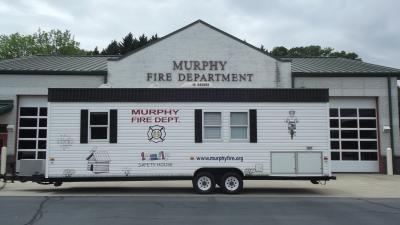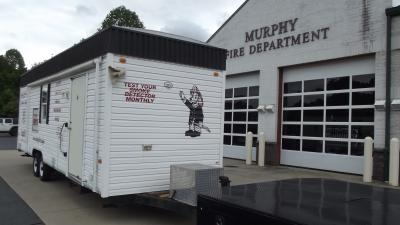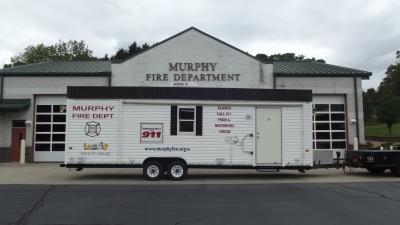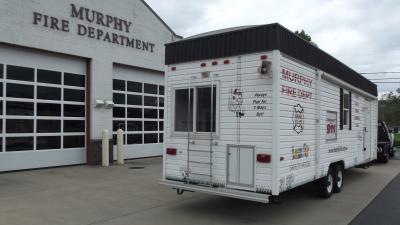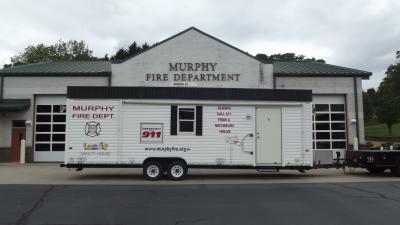
Murphy Fire Department strives to be proactive in fire prevention & safety education. An effective fire prevention program is proven to reduce the number of incidents we are required to mitigate. We have a public education safety house to assist with our educational efforts with children ages 9+ through senior adults. This resource is mobile and available by request.
This resource has 3 primary rooms: a kitchen, living room and bedroom. Several prevention props are available within this mobile safety house including but not limited to:
- Cooking safety
- Fire extinguisher selection & location
- Kitchen appliance safety
- Audio / visual smoke alarms & testing
- carbon monoxide alarms
- Fireplace safety
- Candle safety
- Window blind safety
- Christmas tree & wrapping paper safety
- Sleeping safety including simulated smoke, heated door and exit options
Exterior emphasizes
- Testing smoke alarms
- A family meeting place
- Calling 911
- 2 ways out of each room
- Bicycle safety
Fire Prevention Tips
Did you know that heating equipment is a leading cause of home fires during the winter months?
Heating fire safety tips:
- Have heating sources serviced each year.
- Keep space heaters at least 3 feet from flammable objects.
- Make sure gas heaters are well ventilated.
- Never leave space heaters unattended.
- Test your smoke detectors
Cooking is the second leading cause of home fires.
Cooking fire safety tips:
- Never leave cooking unattended
- Turn pot handles inward to prevent spills
Wear short sleeves when cooking
Keep a pan lid handy in case of a fire. - Have a Class K (Oil/Grease compatible) fire extinguisher in your kitchen.
- Test your smoke detectors.
The holiday season can be one of the deadliest seasons of the year.
Holiday Season fire safety tips:
- Use decorations that are labeled flame resistant.
- Use extreme caution if using candles.
- Do not overload extension cords
- Keep packages away from heating sources.
- Test your smoke detectors.

